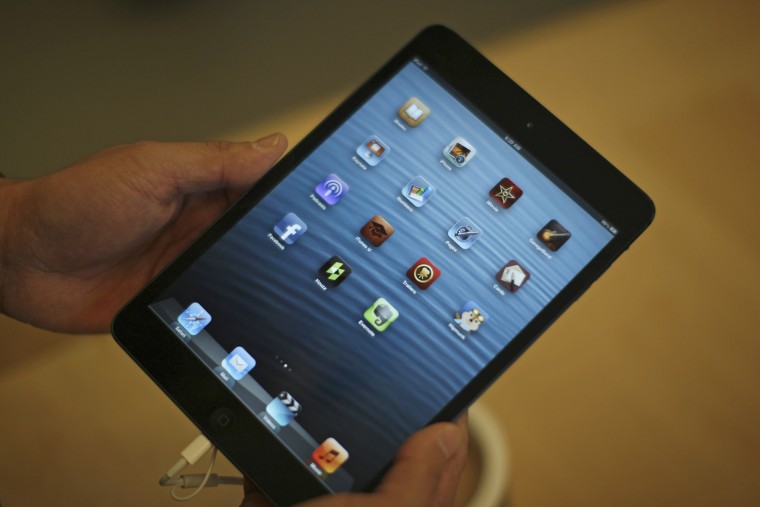Los Angeles' massive billion dollar initiative to give iPads to every student in the school district faced an early setback this week, as high school students hacked the devices to access “non-educational” content, officials said.
About 185 high school students altered security settings on the school-granted iPads, giving students access to unauthorized web sites like Facebook and YouTube when outside of the district’s firewall, according to a district statement. Officials said the problem was isolated to three high schools.
Following the discovery, the district announced a halt in off-campus usage of the devices.
The school district is the second largest in the nation, with more than 640,000 students from kindergarten through 12th grade.
The problems is one school districts across the nation are facing as educators start to incorporate the use of tablet computers in education from elementary to high school.
“It can be very difficult because our students are tinkerers in nature, so they’re going to try to circumvent what’s in place,” said Pat Karr, director for Network Services and Support for McAllen Independent School District in Texas, which currently offers iPads for each of its 25,000 students in 34 schools.
The Los Angeles Unified School District announced the initiative to give iPad access to all of its students as part of its Common Core Technology Project in June, and had begun dispersing them to 47 high schools last month. The three high schools involved in the hacking incident are a part of Phase 1 of the program.
The moratorium on off-campus use will continue “until the District can be 100 percent certain the problem has been resolved and students are using the devices safely and appropriately,” according to a school district statement.
“But that’s not going to stop the instructional lessons in the classrooms,” said Bernadette Lucas, director of the Common Core Technology Project.
“Our focus is on digital citizenship and ensuring that our students are empowered through technology,” she added.
Lucas added the Common Core Technology program did not have a set date for reissuing iPads for off-campus use, but that they were working with their partners to find a solution.
As for measures in the schools themselves, Lucas said the program needed to foster “open conversation with kids about the choices they make with technology.”
“As educators it’s up to us to create rich and engaging learning experiences,” she said.
Karr said he hoped as more schools gained experience with tablet programs, the devices would become more of an essential education tool and not “an entertainment piece.”
The McAllen Independent School District faced similar hacking issues and now uses a private virtual network connection to ensure tablets are filtered just as though they were inside the district even when students use them at home.
“The only way to curb that is education. It’s not a technology issue,” he said.
